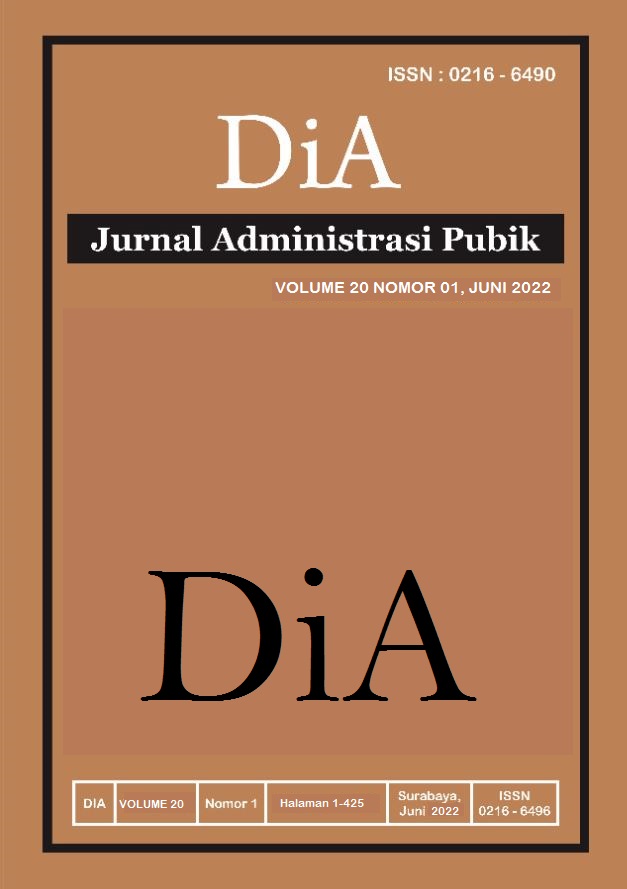THE ROLE OF THE DEPARTMENT OF TRADE AND INDUSTRY IN EFFORTS TO FOSTER FORMER STREET VENDORS OF JOMBANG REGENCY SQUARE
DOI:
https://doi.org/10.30996/dia.v20i01.6309Keywords:
Role of Government, Guidance, Street VendorsAbstract
Street vendors in the Jombang Regency Square have lost their places to sell due to a policy that prohibits selling in the square. This policy was implemented by the Jombang Regency Government with the aim of breaking the chain of spreading COVID-19. As a result, there are many vendors selling on the road shoulders and sidewalks. The decrease in income was also experienced by street vendors from the former square. This study aims to analyze and describe the role of the Department of Trade and Industry in effort to foster former street vendors of Jombang Regency Square. This type of research is descriptive qualitative research with data collection techniques through observation, interviews, documentation, and literature study. The concept used is the role of local government according to Gede Diva (2009:15). The results of this study indicate that the role of the Department of Trade and Industry in effort to foster former street vendors of Jombang Regency Square has not been carried out properly, because there are still street vendors who return to selling in the square area, there is no training program for street vendors, no partnership facilities, and business gathering activities for street vendors have not been carried out.
Downloads
Downloads
Published
How to Cite
Issue
Section
License
The DiA journal allows authors to retain the copyright of their papers without limitation. Authors may grant publishers non-exclusive publishing rights to publish articles. Granting first publishing rights to publishers also qualifies as unlimited copyright (because there are no restrictions imposed by publishers on author copyright).







